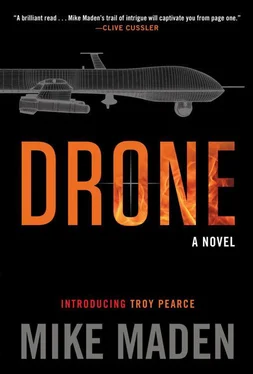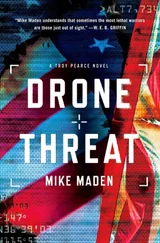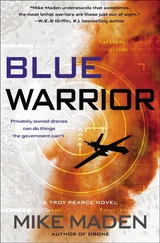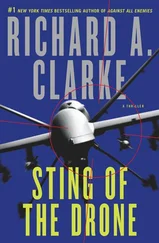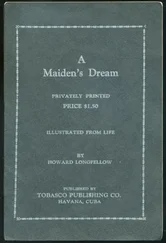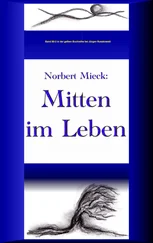President Barraza hovered over Romero and refilled his glass.
“This really is a marvelous tequila. Sweet pear and citrus notes with a pepper finish. I’m going to have to buy a case,” Romero said.
“No need. I’ll have one sent over this afternoon.” The president crossed over to his brother and refilled his glass, then set the bottle down on the coffee table between them. He took his seat.
Hernán Barraza rolled the snifter between his stubby fingers, never lifting his eyes from it as he finally spoke. “My associates in the distillery business pray for the day you Americans make liquor illegal again—it would quadruple their profits.” He swirled the liquor in the glass and sniffed the aroma. “Cartels make drugs, but it’s your politicians who make the laws that make the cartels rich. The drug problem, as we all know, is a demand problem, not a supply problem. If you Americans had an insatiable lust for tomatoes, we wouldn’t be having this conversation today, and maybe we would have been spilling tomatillo sauce instead of blood all these years.”
Hernán finally looked up from his glass. He smiled at Romero with his sad eyes and a mouth full of small, crooked teeth. “I only see one flaw in your request, Frank. What happens if we do make a ‘discreet inquiry’ and Mr. Castillo and his sons insist they had nothing to do with the El Paso event? Will President Myers be satisfied with that answer?”
Romero set his empty glass down on the table. He cleared his throat.
“Frankly, no.”
Hernán took another thoughtful sip. “Thank you for your candor. Of course she wouldn’t be satisfied. Neither would I, were I in her shoes. Officially, César Castillo is an upstanding Mexican businessman who donates millions to charitable work. His two sons earned their bachelor’s degrees in business administration at the University of Texas at Austin, and MBAs at the IE Business School in Madrid. They, too, are legitimate businessmen working within their father’s privately held corporation. Neither Mr. Castillo nor his sons have ever been convicted of a crime.”
Hernán swirled the tequila again in his snifter. “And yet, ‘Hijos de maguey, mecates . ’”
Romero nodded. “The sons of a hemp plant are going to become ropes.” It was a clever variation on an old Mexican proverb.
Hernán leaned forward, his eyes locked with Romero’s.
“Unofficially? I think we can all agree that César Castillo is the boss of the most powerful crime syndicate in Mexico, if not all of Latin America, which makes him a very dangerous man. He will not view a ‘discreet inquiry’ as anything less than a personal assault on his honor and his position, and he will likely retaliate. But a ‘discreet inquiry’ won’t accomplish anything at all, as you yourself have just admitted.”
Hernán leaned back in the couch, his head against the rear cushion. He was so short that the top of his head didn’t reach to the top of the couch. “America is our strategic partner and our best trading customer. We share a common border and a common history and, increasingly, a common people, which means we share a common destiny. We want an end to the violence and destruction even more than you do.”
Hernán turned toward his brother, his head still resting against the couch.
“What I recommend, Mr. President, is that we bring the two Castillo boys in for questioning, by force if necessary. If we suffer the consequences for this, so be it. It’s the least we can do for our friends in the north, don’t you agree?”
President Barraza frowned with confusion. That was the last thing in the world he expected his nationalistic brother to say. An oily smile greased Hernán’s pockmarked face. What was Hernán’s game? No matter. He would follow his brother’s lead. The president smiled, too, and turned toward Romero.
“Yes, of course. We will do whatever it takes to get to the truth behind this terrible tragedy. You have my word on that, Frank.”
Romero beamed. “Thank you, Mr. President. I will convey your heartfelt message to President Myers, and I can assure you she will be eternally grateful for your assistance in this matter.”
* * *
Romero departed for his embassy, eager to convey the good news to Secretary of State Eddleston on a secure line. Antonio Barraza shut the door behind the American, then stormed over to his brother, who had retaken his seat on the couch.
“Are you fucking crazy? We can’t arrest Castillo’s kids. Next thing we know, he’ll be stacking cops’ heads in the Zócalo. Maybe ours, too.”
Hernán leaned back on the couch, propped his stumpy legs on the hand-carved coffee table, and folded his hands on the curve of his round belly. He closed his eyes. “This Myers woman. She’s not stupid. If she could handle this problem herself, she would. But she can’t. So she needs us to do it. Or at least try to do it.” His voice was calm, even soothing.
Antonio’s curiosity was piqued. He sat down next to his brother and listened in rapt attention.
“We must make a good show of it. We’ll have live video feed, both here and in Washington. The Americans must see our heroic men risking their lives in order to try and carry out justice for the grieving American president.”
“I know just the man. Sanchez. He’s with the Federal Police.” Antonio was getting excited. He liked to think he was able to keep up with Hernán’s scheming.
Hernán kept his eyes shut. “No. Not him. We need our best man, the head of our best unit. Incorruptible. Undefeated.” Hernán searched his photographic memory. “Cruzalta. Colonel Israel Cruzalta.”
“ Dios mio. Yes. If anyone can stand up to Castillo, it’s him and his gung-ho Marines.” President Barraza patted his brother on his flaccid thigh. “We’ll drag those Castillo assholes to the police station in chains if we have to. Their father, too. Excellent suggestion.” He checked his Rolex. “I’m late for an important meeting.”
Hernán kept his brother’s schedule. The important meeting was actually a round of golf with his mistress.
“Make the arrangements and coordinate with the Americans.”
“As you say, Mr. President.”
Antonio dashed out of the office.
Hernán sighed and poured himself another drink. He despaired at his brother’s lack of imagination. He thought about explaining the overall plan he had in mind, but his older sibling would just get confused. Hernán’s vision was too complicated, too violent, and too subtle for the actor to comprehend, let alone execute. It was better that Antonio remain a handsome figurehead while Hernán pulled the strings behind the scenes.
At least for now.
Hernán heard his mother’s small, pitying voice in his head again, an echo from his childhood.
You can’t fight fate, pobrecito.
“To hell with that,” Hernán said to nobody as he drained his glass.
Near the Snake River, Wyoming
Pearce hadn’t built his worldwide company in less than a decade by micromanaging. By temperament and training, he was an analyst, always looking for the big picture. When he decided to strike out on his own, he saw a world of opportunities thanks to advances in drone technologies. Drones themselves weren’t actually new technology. Nikola Tesla earned the world’s first patent for wireless remote-controlled vehicles in 1898 and demonstrated the remote-control wireless powerboat in Madison Square Garden that same year.
Pearce’s other gift was people. He knew how to hire the right ones to seize those new opportunities.
Drones were changing not only modern warfare but nearly every other aspect of civilian life as well. In the end, drones were just delivery systems. Energy, medicine, agriculture, and transportation were just a few of the areas being transformed by the advent of autonomous, independent, inexpensive, and reliable vehicles.
Читать дальше
